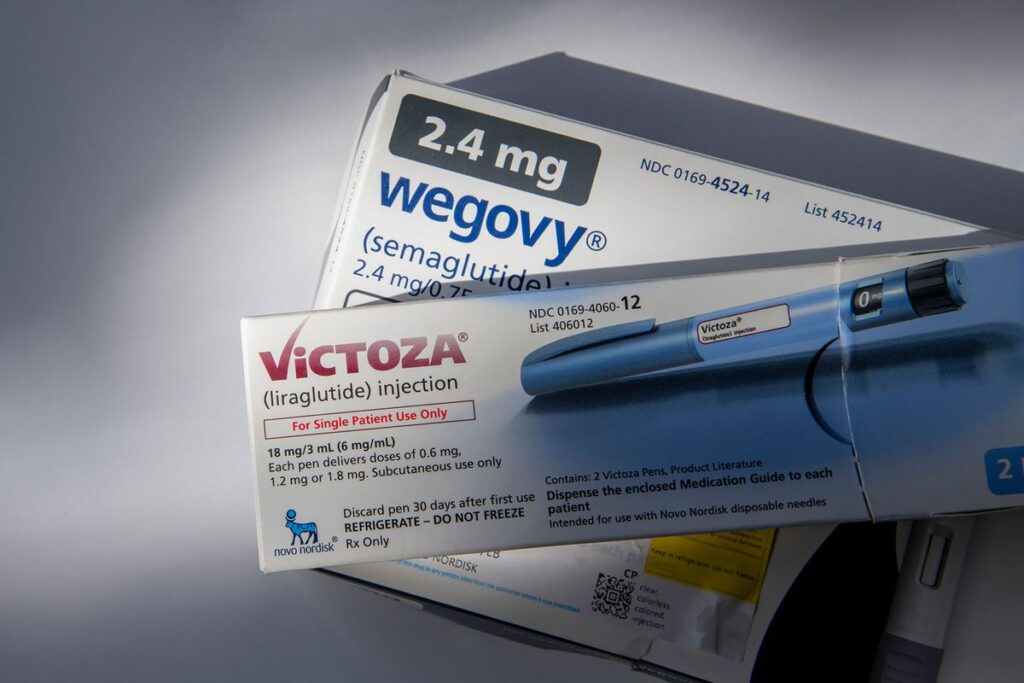Big players are jumping on the lucrative weight-loss drug market, which Goldman Sachs expects to grow from $6 billion to $100 billion by 2030. Last month, Costco announced an expanded partnership with Sesame, an online telemedicine platform that connects health care providers with consumers nationwide, to offer qualified members special prices on prescriptions for GLP-1 weight-loss drugs such as Ozempic and Wegobee. The retail giant's weight-loss program follows rivals Amazon and Weight Watchers, which offer similar services to their members. High-end gyms such as Life Time and Equinox have also opened new clinics to cater to the growing number of members taking such drugs.
Nestle is joining the trend with a new frozen food brand aimed at people taking GLP-1 drugs. The company announced on Tuesday that it will launch 12 portion-controlled meals under the brand name “Vital Pursuit,” which are high in fiber and protein and “aimed to be an ally for GLP-1 weight-loss drug users and other consumers focused on weight management.” The meals will be available in select stores later this year and could have a suggested retail price of less than $4.99, CNN reports.
“We know that health-conscious consumers have individual needs and considerations, and having choices that support those needs will continue to play an important role,” Tom Moe, president of Nestle's U.S. Foods division, said in a statement obtained by CBS News.
GLP-1 agonists, a type of type 2 diabetes medication that gained popularity online as an anti-obesity drug, are on the rise. According to Healthline, one in eight American adults use GLP-1 agonists. Half of them report taking one of these drugs, including Novo Nordisk's Ozempic and Wegobee, and Eli Lilly's Maunjaro and Zepbound. According to analytics firm Trilliant Health, about 9 million prescriptions for GLP-1 drugs were written in the fourth quarter of 2022. And analysts at Morgan Stanley Research predicted in a recent report that 24 million people, or 7% of the U.S. population, will be using the drugs by 2035.
Drugs such as Ozempic and Wegovy work by mimicking the action of a hormone called glucagon-like peptide 1 (GLP-1), which is responsible for managing blood sugar levels, slowing digestion, and reducing hunger and food intake. Obese people have low levels of GLP-1, which is “boosted” by these drugs and acts at the cellular level. Studies have shown that patients who used GLP-1 agonists while making lifestyle changes lost about 33.7 pounds (15.3 kilograms) compared to 5.7 pounds (2.6 kilograms) for those who did not use the drug.
Although research into GLP-1 weight loss drugs is still ongoing, doctors know that the drugs slow the movement of food from the stomach to the small intestine. As a result, patients tend to feel full sooner and for longer and eat less. To enhance the effectiveness of the medications that control blood sugar and weight, patients are encouraged to eat a balanced diet.
Nestle's Vital Pursuit aims to replenish prescription drug users with important nutrients they may be missing due to low food intake. The meals are made with whole grains or protein pasta and are fortified with nutrients such as potassium, calcium and iron. The specific meal lineup has yet to be announced, but the brand is reportedly touting items such as whole grain bowls, sandwich melts and pizza.
Shortly after Vital Pursuit was announced, Nestle received backlash from chef and TV personality Andrew Zimmern, who, in an interview with TMZ, slammed certain users of the hit weight-loss drug. Zimmern said he supports the drug, especially when it helps “people who are obese or have comorbidities,” but isn't a fan of the drug in other cases.
“It's kind of crazy to buy $200 to $300 of injectables and stuff them in your tummy just to make yourself look better,” Zimmern said in a video interview.
He went on to discuss the irony of a “major processed food company” launching a food line to be eaten with a weight loss drug: “I think it's a really sad truth that we're going to see more and more sub-$5 processed foods alongside very expensive injectables, and I think it's just the worst thing ever to associate a drug like Ozempic with a food line.”
Zimmern went on to suggest that obesity can be easily overcome by “taking care of your body” through healthy eating, sleep, exercise and good habits. “It really is that simple,” he said.
Want more great food articles and recipes? Subscribe to Salon Food's newsletter, The Bite.
Weight loss drugs remain controversial. Many describe them as “lazy,” while others blame the weight loss drug companies, and now big corporations, for wanting a quick fix. Those who actively take the drugs praise them as life-changing and helpful. But they mostly emphasize that they are a necessity.
Oprah Winfrey has been one of the drugs' most vocal advocates, admitting in December that she uses them as a “maintenance tool.” Winfrey touted the power of weight-loss drugs on her primetime ABC show, “The Oprah Special: Shame, Blame, and the Weight-Loss Revolution.”
“I never dreamed that in my lifetime I'd be having a discussion about a medicine that offers hope to people like me who have struggled for years with being overweight or obese,” Winfrey said. “So I'm having this conversation in the hope that we can begin to eliminate the stigma, the shame and the judgment, to stop blaming others for being overweight, for how they choose to lose weight, or not lose weight, and most of all, to stop blaming ourselves.”
read more
About the blockbuster weight loss drug:



